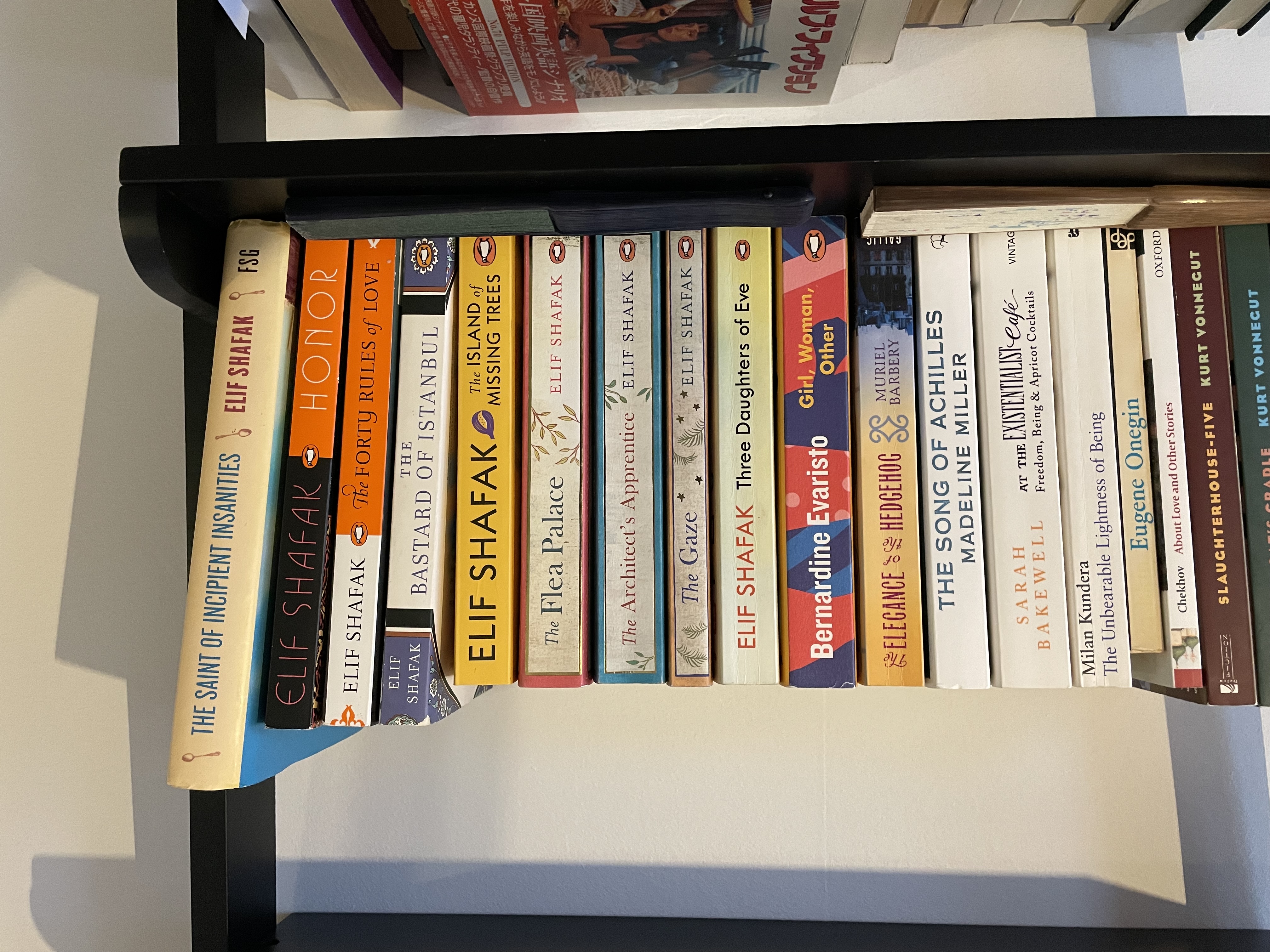jmglov's blog
A blog about stuff but also things.
A blog about stuff but also things.

It's Valentine's Day, so let's talk about love. Specifically, let's talk about the forty rules of love. 💕
If you haven't heard of Elif Şafak (pronounced "Shafak" in English), you are in good company, if you consider me from six years ago to be good company (no offence if you don't; we don't know each other that well—unless we do, in which case whyyyyyyyy don't you like me?). In fact, if you haven't heard of her, you are a lucky lucky person, because you have literary treats beyond your imagination in your future! A writer partial to a pun might even go so far as to call her books Turkish delights. I, of course, would never be so prosaic.
I first discovered Elif Şafak through my wife, who has absolutely exquisite taste in books. She was reading "The Bastard of Istanbul", and she kept reading passages out loud to me. I told her that I wanted to read it as soon as she finished, and she told me that she actually had another of Elif Şafak's books, "Honour", and that I should definitely read it.
I grabbed it off the bookshelf immediately and dove into a story of "a young Kurdish woman in London trying to come to terms with the terrible murder her brother has committed." This is a really serious topic, and Şafak approaches from a modern secular feminist perspective, whilst managing to be both critical of and respectful of Islam. The book is also side-splittingly funny at times, and this is typical of her writing. She weaves humour throughout her at times heart-rending stories, and is a masterful observer of people who uses her sharp wit to ridicule at times, but also draws upon a deep wellspring of compassion to paint her characters as complex humans instead of cartoon villains.
By the time I finished "Honour", my wife was done with "The Bastard of Istanbul", so I started it right away. And if "Honour" engaged me, "The Bastard of Istanbul" grabbed me by the shirt collar and wouldn't let go until I finished it, for it was set in Istanbul, a city that had long fascinated me. Here's the setup for the book:
Whatever falls from the sky above, thou shall not curse it.
That includes the rain.
No matter what might pour down, no matter how heavy the cloudburst or how icy the sleet, you should never ever utter profanities against whatever the heavens might have in store for us. Everybody knows this. And that includes Zeliha.
Yet, there she was on this first Friday of July, walking on a sidewalk that flowed next to hopelessly clogged traffic; rushing to an appointment she was now late for, swearing like a trooper, hissing one profanity after another at the broken pavement stones, at her high heels, at the man stalking her, at each and every driver who honked frantically when it was an urban fact that clamor had no effect on unclogging traffic, at the whole Ottoman dynasty for once upon a time conquering the city of Constantinople, and then sticking by its mistake, and yes, at the rain . . . this damn summer rain.
OK, I said that the story is set in Istanbul, which is true, but it's only part of the truth. It's also set in Tucson, Arizona and San Francisco. It follows two characters, Asya Kazancı and Armanoush Tchakhmakhchian, and shows how their families are connected through the Armenian Genocide.
If you know anything about modern Türkiye, you might know that there's a law against "insulting Turkishness", and some right wing lawyer actually used it to sue Elif Şafak in 2006. Despite the prosecutor initially dropping the charges after finding no insult, the lawyer appealed to a higher court. Şafak faced up to three years in prison, but was fortunately acquitted due to lack of legal grounds and insufficient evidence (see the Wikipedia article for more details.) This kind of legal harassment continued to dog her, leading her to eventually emigrate to London.
The next of her books that my wife bought would become my favourite: "The Forty Rules of Love". It is set in 13th centural Anatolia, and also 21st century USA. It tells the story of the historical figure Rumi, who was a Muslim cleric who had a chance meeting with a wandering dervish named Shams (who is also a historical figure, something I didn't know until writing this post) and became transformed into one of the greatest romantic poets the world has ever known. The story is revealed to us as it's revealed to Ella, a 21st century housewife who receives a mysterious book called "Sweet Blashemy" in the post.
"The Forty Rules of Love" is not only my favourite Elif Şafak book, it's one of my favourite books, full stop. Please please please do yourself the favour of reading it. You won't regret it! And if you do, please write to me and explain why you regretted it, so I can tell you that you didn't in fact regret it, but only thought you did. Or maybe don't @ me at all. Your choice, really.
So why do I bring up Elif Şafak now? Well, I just read another of her books, "Three Daughters of Eve", which almost displaced "The Forty Rules of Love" as my fav. This book is:
a story about identity, politics, religion, women and God. It is the story of Peri, a young Turkish woman who grows up observing the clash between her father's lonely secularism and her mother's Islamic religiosity. Peri earns a scholarship from Oxford University and arrives in England. She becomes friends with the charming Shirin, an atheist Iranian girl, and Mona, a headscarved Egyptian-American. It is an unlikely friendship among three very different girls from Muslim backgrounds. Shirin, “the sinner”, Mona, “the believer”, and Peri, “the Confused.”
Peri's life changes dramatically when she meets the charismatic but controversial Professor Azur who teaches about God. Peri falls in love but it is a love that will only bring an unexpected twist and a dark secret that she will have to carry for many years to come. By observing Peri's life in contemporary Istanbul, Shafak takes a close look at Turkey today and reveals the problems that Turkish society hides within.
In true Şafak fashion (Şafashion?), the story is told in two different times, starting out in present day Istanbul, but flashing back to Peri's childhood in Istanbul in the 1980s and then Oxford in the 1990s as events unfolding in the present trigger Peri's memories of her youth.
I guess my point is that Elif Şafak is super awesome and you should read her books. 😂
I for one still have a few to go.
